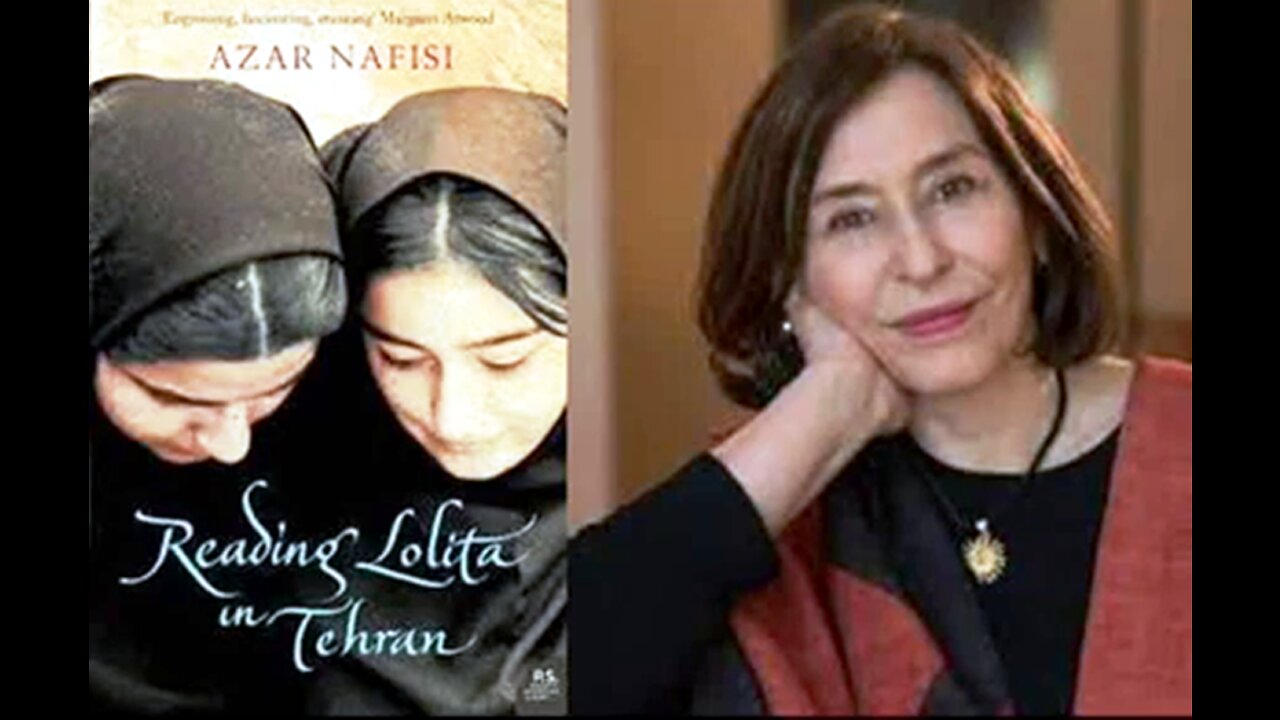Premium Only Content

Summary: Reading Lolita in Tehran (Azar Nafisi)
"Reading Lolita in Tehran" is a memoir written by Azar Nafisi, an Iranian-American author and professor. The book was first published in 2003 and became a bestseller, receiving widespread critical acclaim.
The memoir recounts Azar Nafisi's experiences as a literature professor in Iran during and after the 1979 Islamic Revolution. She describes how, as a professor at the University of Tehran, she formed a secret book club with a group of her female students. The book club provided a space where they could read and discuss works of Western literature, including novels by Vladimir Nabokov, F. Scott Fitzgerald, Henry James, and others, which were considered subversive or forbidden by the Islamic regime.
"Reading Lolita in Tehran" explores several themes:
1. The Power of Literature: The book highlights how literature can be a source of solace, inspiration, and resistance, even in the most oppressive circumstances. Through the analysis of classic novels, Nafisi and her students find a means of escaping the limitations placed on them by the government.
2. Women's Rights: Nafisi's narrative also delves into the challenges and restrictions placed on women's rights and freedoms in post-revolutionary Iran. It sheds light on the struggles of women who sought to assert their independence and individuality in a deeply patriarchal society.
3. The Intersection of Personal and Political: The book intertwines the personal stories of the women in Nafisi's book club with the broader political and social context of Iran. It provides a unique perspective on how political upheaval affects the lives of ordinary people.
4. Education and Empowerment: "Reading Lolita in Tehran" emphasizes the transformative power of education and intellectual exploration. Nafisi's teaching methods and the discussions in her book club empower her students and help them navigate a repressive society.
The book is celebrated for its eloquent writing and its ability to provide a glimpse into the lives of Iranian women during a tumultuous period in the country's history. It has been praised for its exploration of themes such as freedom, the role of women in society, and the enduring impact of literature. Additionally, it has sparked discussions on the importance of cultural exchange and the universality of literature across different cultures and political landscapes.
-
 1:06:28
1:06:28
Russell Brand
3 hours agoWho Ordered the Hit on Russia’s General Krylov? - SF516
86K57 -
 UPCOMING
UPCOMING
The Kevin Trudeau Show
2 hours agoWhat Men Do Wrong In Relationships | Ep. 75
160 -
 12:41
12:41
Gun Owners Of America
1 hour agoWe're Fighting Back Against Mexico In Court!
82 -
 LIVE
LIVE
The Charlie Kirk Show
1 hour agoThe CR Quagmire + An Hour of PBD + Catholic in Hollywood | Davis, Patrick Bet David, Rep. Burlison
7,641 watching -
 32:54
32:54
Kicking Mustang
7 hours ago $0.02 earnedWatch the Best Ghillie Sniper Moments of 2024...
61 -
 49:34
49:34
PMG
13 hours ago"Hannah Faulkner and Ron Berutti | NEW SUPREME COURT CASES"
476 -

The Boomer Effect
14 hours agoPondering Life in Modern America
20 -
 1:01:44
1:01:44
Grant Stinchfield
1 hour ago $2.09 earnedDon't Focus on the Drones... Focus on the Mysterious Floating Orbs!
13.3K1 -
 LIVE
LIVE
The Dana Show with Dana Loesch
1 hour agoSPENDING BATTLE COUNTDOWN | The Dana Show LIVE On Rumble!
556 watching -
 59:38
59:38
The Dan Bongino Show
4 hours agoThings Have Changed, It's Trump's GOP Now (Ep. 2390) - 12/18/2024
559K1.1K